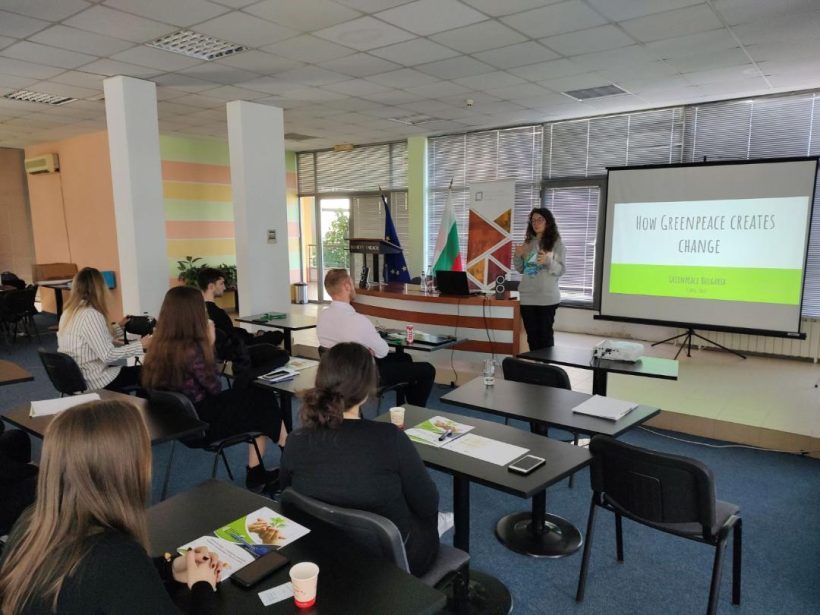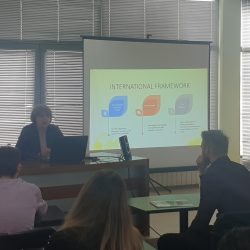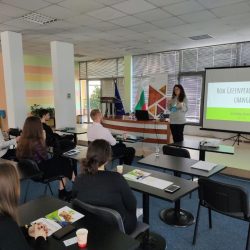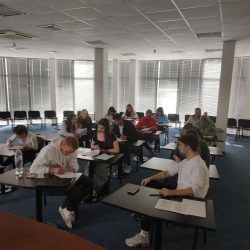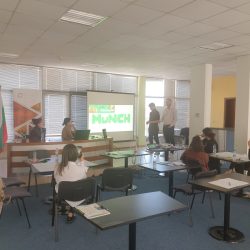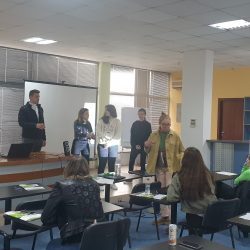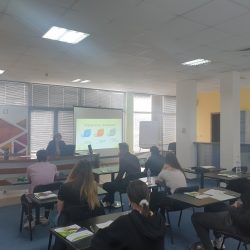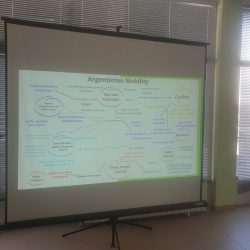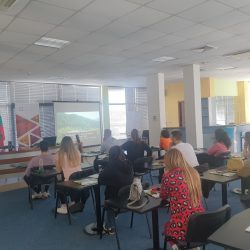The 7-day seminar for the training of 15 youth workers from Bulgaria, the Republic of North Macedonia and Hungary, within the project “Social ecology – a model for sustainable European development in the 21st century”, No.2020-2-BG01-KA205-079309, co-funded by the Erasmus+ Programme of the EU, has successfully ended. The project is implemented by the Bulgarian Memory Foundation (BGMF) – as coordinator, in partnership with EcoCenter Alapítvány, Hungary and the Association for Macedonian-Bulgarian Friendship, Republic of North Macedonia.
Along with the fruitful work in groups and the development of elements of the project’s intellectual outputs, the youth workers discussed the possibilities of financing green entrepreneurial ideas with Yasen Georgiev, Executive Director of the Economic Policy Institute, Sofia. The politologist Yanitsa Boycheva presented a comparative analysis between Europe and Asia, regarding the impact of social ecology on people’s daily lives.
“Economic aspects of the green transformation and the European Green Deal – 2030” was the topic of the lecture delivered by Assoc. Prof. Svetla Boneva, Ph.D. from the “International Economic Relations and Business” Department, UNWE, Sofia. Dr. Mladen Lambeff from the BGMF project team introduced the youth workers to the first intellectual output within the project: “Report with good practices in the field of social ecology and environmental protection”. Boryana Kamenova – Director of the “Climate Change Policies” Directorate at the Ministry of Environment and Water of the Republic of Bulgaria, shared with the participants up-to-date information about the implementation of the Green Deal-2030 and the Paris Global Climate Agreement. An answer to the question: “How does Greenpeace create change?” was given by Meglena Antonova, Head of Campaigns at Greenpeace – Bulgaria.
The results of the group activities and presentations that the youth workers gave in a thematic session at the end of the workshop will serve the innovation team of the project to develop an innovative socio-ecological methodology, as well as training videos that will be available on the project’s online educational platform: https://socialecology.eu/.
*This publication reflects the views only of the author, and the Commission cannot be held responsible for any use, which may be made of the information contained therein.

